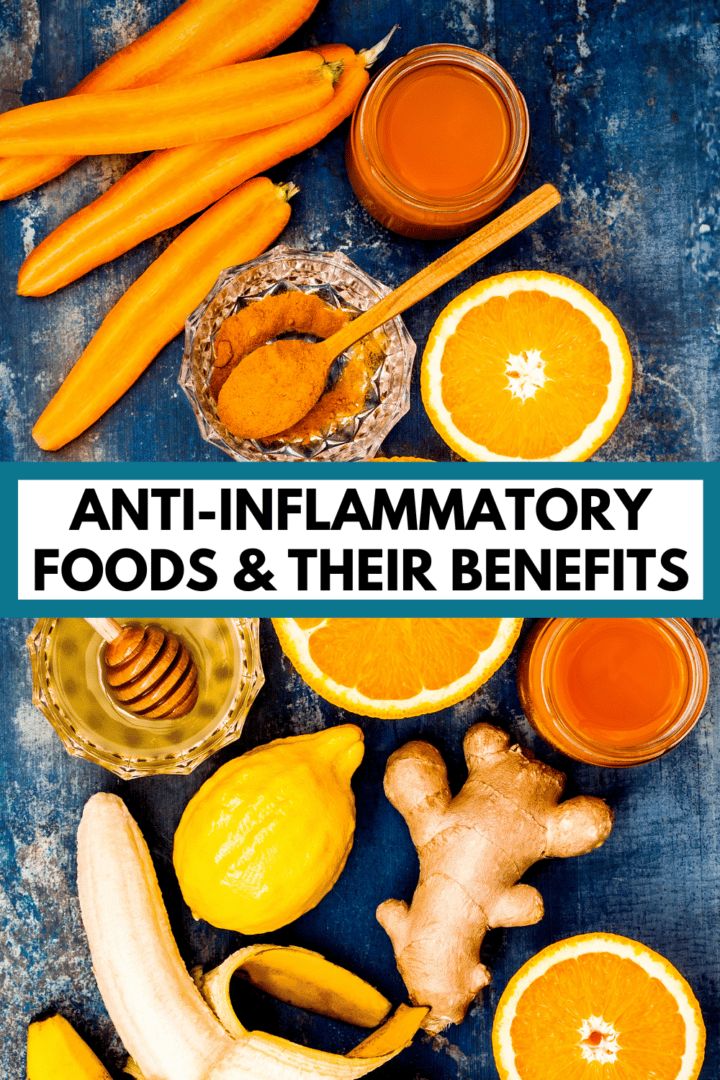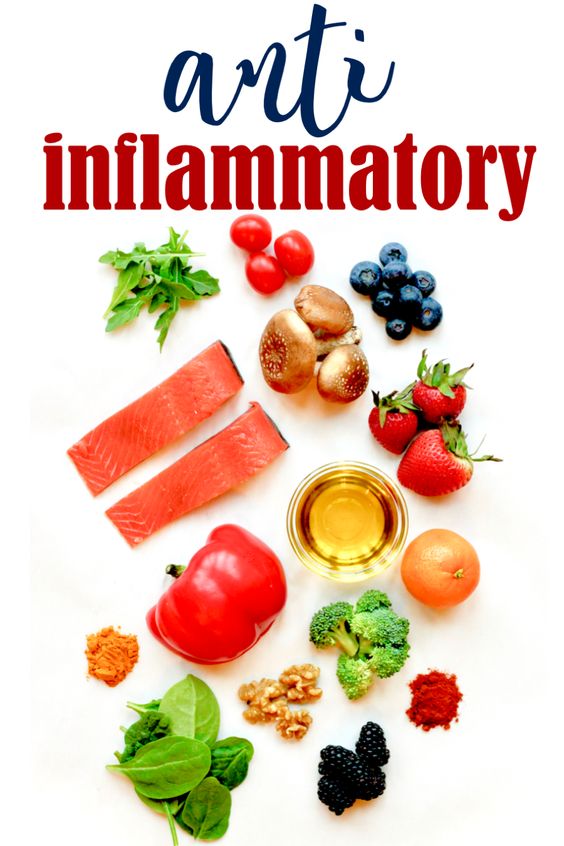Can a vegetarian diet reduce inflammation?
Depending on what you eat, your
diet
may cause or reduce inflammation. By danielle underferth
depending on what you eat, your diet may cause or reduce inflammation.
 Inflammation is the body’s response to injury or infection. Without it, we would be defenseless against everything from bee stings to deadly pathogens. Many factors affect inflammation, and your diet is just one of them. “inflammation is basically an immune response to any kind of threat that your body sees, like bacteria, toxins or allergens,” says lindsey wohlford, a wellness dietitian at md anderson. “sometimes, food is the threatening agent that causes your body to react with inflammation.
Inflammation is the body’s response to injury or infection. Without it, we would be defenseless against everything from bee stings to deadly pathogens. Many factors affect inflammation, and your diet is just one of them. “inflammation is basically an immune response to any kind of threat that your body sees, like bacteria, toxins or allergens,” says lindsey wohlford, a wellness dietitian at md anderson. “sometimes, food is the threatening agent that causes your body to react with inflammation.
The connection between our digestive system and overall health has been a subject of growing interest in recent years. One key factor in maintaining a healthy gut is managing inflammation, as chronic inflammation can lead to a variety of digestive issues and contribute to systemic health problems. The good news is that one of the best ways to reduce inflammation lies not in the medicine cabinet, but in the kitchen! you can support your gut health by incorporating anti-inflammatory food s into your diet.
While medicine is often necessary to reduce chronic inflammation, some people can see major improvements by making simple changes to their diet. Let's take a look at some of the do's and don'ts when building a diet to fight inflammation. If you've ever torn a muscle or cut your hand, you've experienced inflammation. Inflammation is your body's natural response to injury and infection — it's a defense mechanism that triggers your immune system to start the healing process. The problem with inflammation is that it can last longer than it needs to — and the lingering symptoms can cause additional health concerns.
This plan includes a month of meals and snacks incorporating the principles of the anti-inflammatory diet while pumping up the protein. Each day provides at least 75 grams of protein and 28 g of fiber, so you can enjoy the delicious flavors of this anti-inflammatory diet plan while keeping hunger at bay due to the satisfying power of these two nutrients. Though diet is an important factor, it's helpful to include other strategies to reduce inflammation , such as improving sleep quality, reducing stress and incorporating regular exercise. Because many people follow meal plans to assist with weight loss, this plan is set at 1,500 calories per day.
What is the fastest way to reduce inflammation in the body?
Before we get to anti-inflammatory foods, let’s define what inflammation is and why it is necessary to reduce it. Inflammation is a physiological process, which is involved in the defense and repair of tissues in our body. It is acutely activated when we suffer from any infection or trauma or allergic reactions. However, sometimes inflammation persists, day in and day out, even when we are not threatened by any infection. Chronic inflammation can also contribute to the development of diseases such as cardiovascular (heart) disease, autoimmune disease, neurological (brain) disease, cancer, and others. Inflammation is also known to play a role in ageing.

Some studies have shown that supplements derived from spices such as clove, coriander, garlic, ginger, onion, pepper, and turmeric target inflammatory pathways associated with chronic diseases. In addition, supplements that contain anti-inflammatory nutrients, antioxidants, or other compounds may reduce inflammation in the body.
Rather than being a strict ‘diet’, the anti-inflammatory diet is more a set of guiding principles that influences how you select, prepare and eat food. Ever wonder what foods cause inflammation in the body? typically, fast and processed foods that are high in fat, sugar and salt are eliminated (or at least minimised) and replaced with whole foods with an emphasis on colourful fruit and vegetables, fish and other lean proteins and wholegrains. Most experts advocate a mediterranean-style of eating , because it is thought that the variety of whole foods typical in a traditional mediterranean diet work together to promote the desired anti-inflammatory effects, rather than one specific food being the answer.
Anthocyanins, turmeric , omega-3 fatty acids, resveratrol—these are just some of the nutrients and compounds that come up when talking about the anti-inflammatory diet. Does it sound complicated? definitely! but, it doesn't have to be so complex. The anti-inflammatory diet focuses on healthy fats, nutrient-dense foods, complex carbohydrates, legumes and plenty of fruits and vegetables. You won't see processed foods, excess added sugars, refined grains—like white bread and white flour—or red meat more than once or twice a week. Additionally, it included fruits and vegetables specifically shown to reduce inflammation—such as dark leafy greens and blue and red fruits and vegetables, like cherries, pomegranates, berries and beets.
What are the worst foods for inflammation?
People who live in countries ringing the mediterranean sea, like italy and greece, have traditionally eaten a diet consisting mainly of fruits and vegetables, nuts and seeds, whole grains, fish, and olive oil — the same foods that experts recommend to bring down inflammation. Over the years, researchers began to discover that people who followed this style of eating had lower rates of disease and lived longer than people in the united states who ate a western-style diet. The mediterranean diet is ranked high among doctors and dietitians, and for good reason. Studies show it protects against diseases linked to inflammation, including cardiovascular disease, metabolic syndrome, and type 2 diabetes.
To conclude, this present study provided dietary guidelines which emphasized the consumption of anti-inflammatory foods known to be related to the relief of cp and to improve stress, depression, and sleep disturbances. The homogeneity of our study sample should help the extrapolation of the findings to other populations with cp. Nevertheless, we used a small sample size in this pilot study, meaning that further studies with larger sample cohorts will be required to corroborate the relationships we identified and to confirm the effectiveness of the anmed-s in groups of patients suffering from pain associated with inflammation.
Inflammatory foods are highly refined or processed, and they contain a high amount of saturated fats. Processed meats like hot dogs and lunch meats, and deep-fried vegetables and meats are inflammatory. Same goes for whole milk and whole milk dairy products, so look for lower fat options. Refined carbs and simple sugars like white bread, candy, pastries, soda, sugar, honey, and high fructose corn syrup are also inflammatory, as they cause blood sugar spikes that trigger inflammation. “overconsumption of these foods have been linked to heart disease, diabetes, cancer and obesity,” park says.
It’s amazing how much better you’ll start to feel once you start decreasing inflammation-boosting foods. We’ve outlined the top 15 foods to avoid in your diet and why below, and if you’re serious about following an anti-inflammatory diet, we highly recommend you check out the books the anti-inflammatory diet %26 action plans: 4-week meal plans to heal the immune system and restore overall health (includes options for different dietary preferences, including the paleo diet) and the anti-inflammation cookbook: the delicious way to reduce inflammation and stay healthy (filled with delicious recipes!). 1. White sugar white sugar, found in goodies like pop, chocolate bars and sweets is one of the biggest culprits of inflammation.
Foods That Cause Inflammation
We have good news! the anti-inflammatory diet is flexible, so you don’t need a specific manual to follow it. And it includes lots of foods. “there’s no single food, nutrient or dietary supplement that can directly ‘treat’ inflammation,” says jaclyn london, m. S. , rd, cdn , a new york-based dietitian and author of dressing on the side (and other diet myths debunked). “but shifting toward a mediterranean eating pattern is an excellent way to start an anti-inflammatory eating plan. ”.
“what you eat can have an effect on inflammation, either causing a more pro-inflammatory response or helping to fight it,” explains registered dietitian erin coates, rdn, ld. Coates says that inflammation is often triggered as a way to protect your health when your immune system notices anything foreign in your body. While intermittent inflammation can be protective, chronic inflammation has been linked to many serious illnesses. “if you want to battle inflammation, start by taking a look in your kitchen,” advises coates. “and when you make your grocery list, add fewer foods that cause inflammation and more anti-inflammatory foods like vegetables, fruits, nuts , beans, seeds and fatty fish.
Fighting inflammation can be another important strategy for keeping the brain healthy. The types of fats you consume may play a role in reducing inflammation in the body, and those known as “medium-chain triglycerides” may be particularly helpful. Coconut oil contains this fat. You can cook with it just as you would with olive oil. Other anti-inflammatory foods include rosemary, oily fish, like salmon, tuna and mackerel, dark leafy green vegetables, like kale, collard greens and spinach and soy products.
Natural anti-inflammatories are foods that you can eat to lower your odds of having inflammation. If you have a condition that causes inflammation, it may help to change your eating habits. If you have a condition like rheumatoid arthritis, changing what's on your plate won’t be a magic cure. But an anti-inflammatory diet might lessen the number of flare-ups you have, or it might help take your pain down a few notches. An anti-inflammatory diet is widely regarded as healthy. Even if it doesn't help with your condition, it can help lower your chances of having other problems.
10. Extra virgin olive oil
Olive oil contains heart-healthy monounsaturated fat, antioxidants and oleocanthal, a compound that can lower inflammation and pain. How much: two to three tablespoons per day for cooking or in salad dressings or other dishes best sources: extra virgin olive oil is less refined and processed. It retains more nutrients than standard varieties. For optimal freshness and quality, opt for oils packaged in dark bottles with a certification or seal (cooc, north american olive oil seal, dop) and harvest date close to the purchase date.
Extra virgin olive oil is high in oleocanthal, an anti-inflammatory compound.
Due to its minimal processing, extra virgin olive oil is higher in disease-fighting anti-oxidants such as lignans which may protect against cancer. It also contains polyphenols, which have the ability to reduce inflammation. Try it in this olive oil poached salmon recipe.
Comments
Post a Comment